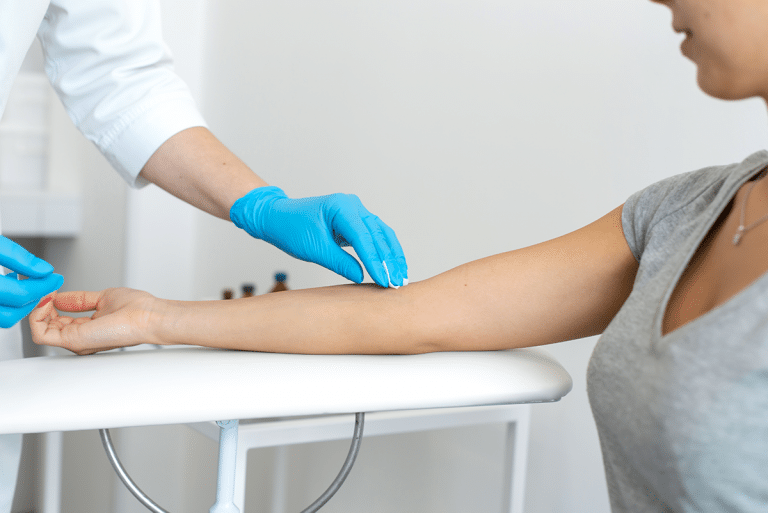Are common thyroid tests reliable and accurate to diagnose thyroid problems?
Thyroid disorders are increasingly common. Yet, about half of sufferers remain undiagnosed due to improper testing and because initial signs and symptoms are vague, ambiguous, and often seen in various disorders. The underlying factor in very common disorders such as weight gain, fatigue, infertility, hair loss, irregular menses, constipation, elevated cholesterol, anemia, or depression may be a malfunctioning thyroid.
Most physicians, including endocrinologists, rely on standard thyroid tests to determine their patients’ “proper” dose of thyroid replacement. The evaluation of a patient’s signs and symptoms to determine the proper dose has been reduced to the point of being unimportant to most physicians.
What Is Wrong With Standard Thyroid Tests?
Thyroid Stimulating Hormone (TSH) is a pituitary hormone whose function is to stimulate thyroid hormone production by the thyroid gland. It is considered the only diagnostic test for hypothyroidism and the most sensitive marker of peripheral tissue availability of thyroid hormones.
The clinical reality is that relying on standard thyroid tests to determine optimal doses of thyroid replacement is inaccurate and doesn’t offer relief or proper treatment for the patient. Unfortunately, most physicians, including endocrinologists, lack the ability or confidence to clinically evaluate a patient’s thyroid status and lack understanding of the limitations of standard thyroid function tests.
Reliable studies already confirmed that TSH is a poor measure for estimating the metabolic severity of primary thyroid failure and/or a proper thyroid dose. The poor diagnostic sensitivity and high false-positive rates associated with such measurements render them virtually useless in clinical practice.
To date, in most clinical practices in the United States, hypothyroidism is diagnosed solely when the TSH level is consistently above the upper limit of normal of 4.0 to 5.0 ng/dL. Unfortunately, this assumption no longer holds true when we delve into the domain of thyroid function in the aging population.

What Do Thyroid Testings Really Tell Us? Which Are The Reliable Alternatives?
In elderly patients, many factors can influence TSH levels, including physiological stress, illness, or inflammation, making the TSH test inaccurate for this population. Under these conditions, tissue levels of T3, the active, energy-giving thyroid hormone, are diminished because the body inappropriately converts T4 to reverse T3, which effectively slows down the metabolism.
Aging and chronic illness also affect the hypothalamic-pituitary-thyroid-cellular axis. Both states tend to present with decreased TSH, decreased conversion of T4 to T3 in the cell, and increased reverse T3 levels. In these cases, serum reverse T3 levels may be a useful indicator of low tissue T3 levels.
Another finding in the aging patient is a reduction in TSH response to thyrotropin-releasing hormone from the pituitary, resulting in depressed levels of TSH. This suppression is similar to the TSH suppression found in severely ill patients with documented nonthyroidal illness.
Increased incidence of systemic illness and multiple medications in the elderly also directly affect thyroid function, further reducing the accuracy of the standard thyroid tests (T4 and TSH) as markers of true thyroid status.
Elderly patients with chronic health conditions who show an FT3/rT3 ratio of less than 1.8 have low tissue thyroid levels. When treated with T3 and time-released T3 (as opposed to T4 only), these patients can see significant improvement in symptoms such as fatigue, depression, weight gain and obesity, heart failure, fibromyalgia, high cholesterol levels, and other chronic conditions.
Although there are limitations in all types of testing for this age group, obtaining free T3, reverse T3 and the FT3/rT3 ratio may be helpful to provide a somewhat accurate evaluation of tissue thyroid status and may predict favorable responders to thyroid supplementation.
Our experts at Holtorf Medical Group are highly trained to offer you an accurate and comprehensive screening and treatment of your hormonal imbalances, all of which address the real causes of your problems and not just cover up the symptoms.


